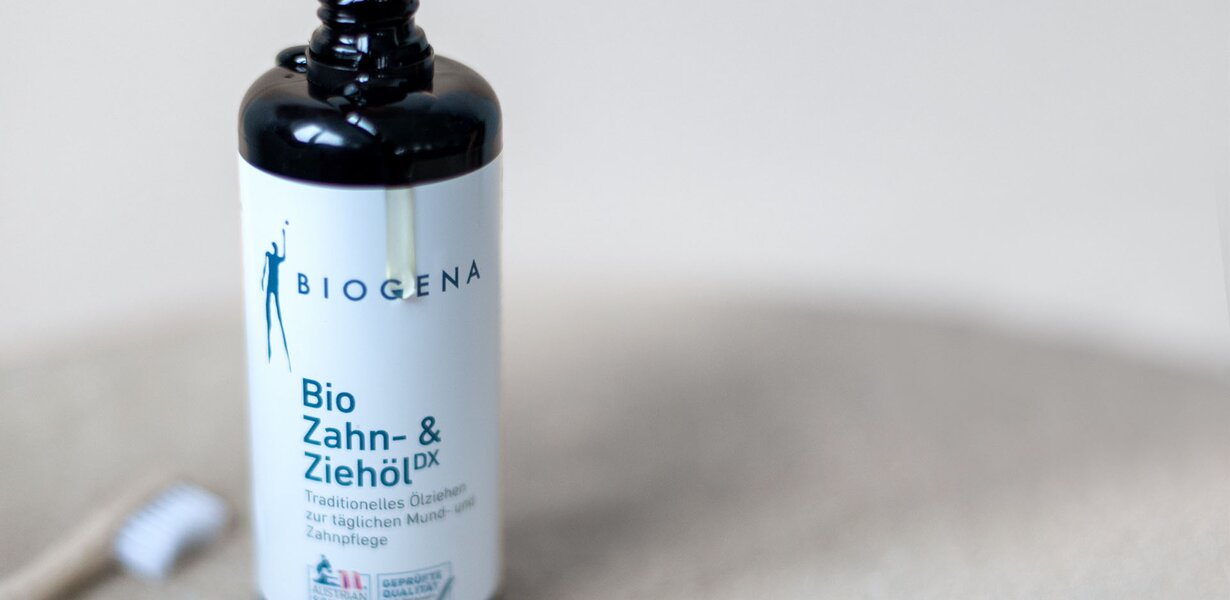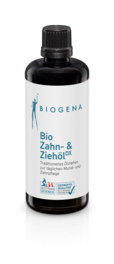What is oil pulling and how does it work?
Oil pulling, also known as “kavala” or “gundusha” has experienced a boom in recent years and is currently on everyone's lips. This principle is not new. But what is this health and beauty ritual precisely and to what extent does it affect the immune system? Followers of this ayurvedic method see a gentle way to remove microbes from the mouth during oil pulling.
But does the Ayurvedic method really do anything? According to a study published in 2011 in the Indian Journal of Dental Research, oil pulling has a proven effect on oral and dental health, as the fatty acids in the oil bind foreign substances that are difficult to reach. Therefore, it is particularly important not to swallow the oil, but to spit it out. Oil pulling is also thought to be an effective home remedy for bad breath. Toxic substances are removed from the body the first time the oil is pulled. Regular applications increasingly stimulate the organs and thus relieve the burden on the immune system and metabolism.
How does oil pulling work? How the application works:
Oil pulling is actually very simple, but requires some practice right at the beginning. To make it easier to get started, you can slowly build up the recommended pulling time of at least 8 to 10 minutes.
- You should pull oil immediately after getting up and on an empty stomach.
- Every morning, one to two teaspoons of oil are taken into the mouth before brushing your teeth and moved through the mouth for eight to ten minutes.
- The oil is then drawn and suctioned through the oral cavity for eight to ten minutes and through the spaces between the teeth.
- It is especially important that the oil is not swallowed under any circumstances, as foreign substances and the bacteria from the oral cavity collect in it.
- After oil pulling, the mouth is best rinsed out with lukewarm water.
- After that, the teeth should be brushed as usual.
Tip: Oil pulling is most effective when it is used over a longer period of time – preferably daily. According to Ayurvedic teaching, oil pulling should not take longer than 20 minutes.
Rinse mouth daily with oil? I don't have that much time...
No time for self care in the morning? The pleasure of oil pulling is that the traditional method can be easily reconciled with the usual morning routine. Because no matter whether showering, making a snack sandwich or relaxing reading the newspaper, oil pulling can be carried out (especially with a little practice) at the same time.
Oil pulling and its effects in detail
This is how the Ayurvedic method supports dental care:
Regular oil pulling can optimally complement daily oral hygiene. In the oral rinsing method, microbes, microbial metabolic toxins and foreign substances pass from the oral cavity into the oil. In addition, pressing the oil through the teeth works like a care-giving gum massage, which intensifies blood flow. Pollutants can be removed more easily, the respective areas are better supplied with nutrients and oxygen. Regular oil pulling is therefore a natural means of keeping the bacterial colonisation of the entire oral cavity in check, of fighting bad breath, tooth deposits and gingivitis and of supporting the health of the teeth and gums.
This is how oil pulling supports detoxification
It is not just our oral health, but our entire body can benefit from the cleansing effects of an oil treatment. How? Have you ever noticed that the hallway in a house is the first area to get dirty again after cleaning? And that, if it is not cleaned, the dirt starts to spread to the rest of the house? This is similar to our body, where the mouth is the entrance area. The oral oil rinses not only help us with cleaning on site, but also reduce microbes and foreign substances and boost the removal of pollutants – so the whole organism benefits from this cleaning.
This is how oil treatments relieve the immune system
Followers of oil pulling also believe they are able to support their immune system through increased oral hygiene. Studies have shown that oral pathogens do not only require bodily defence where they occur, but that the pathogens and inflammatory substances can enter the entire body via the bloodstream and thus affect immune balance and general health.
Which oil is best suited for oil pulling?
High-quality, cold-pressed oils of organic quality are recommended for oil pulling. If you want to use a less flavour intensive oil, sunflower oil is a good choice. The effects of oil pulling can intensify other active substances that are added to the oil. While essential oils support the antimicrobial effect, with selected vital substances, attention can be paid to the detoxifying effects.








